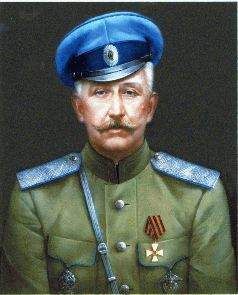Gramsci A., Selections from the Prison Notebooks, trans. Q. Hoare and G. Nowell Smith (London: Lawrence & Wishart, 1971).
Gray J., False Dawn: The Illusions of Global Capitalism (London: Granta Press, 1998).
Greenberg M., "The Limits of Branding: The World Trade Center, Fiscal Crisis and the Marketing of Recovery", International Journal of Urban and Regional Research, 27 (2003), 386-416.
Haggard S. and R. Kaufman (eds.), ThePolitics of Economic Adjustment: International Constraints, Distributive Conflicts and the State (Princeton: Princeton University Press, 1992).
Hale D. and Hale L., "China Takes Off, Foreign Affairs, 82/6 (2003), 36-53.
Hall P., Governing the Economy: The Politics of State Intervention in Britain and France (Oxford: Oxford University Press, 1986).
Hall S., Hard Road to Renewal: Thatcherism and the Crisis of the Left (New York: Norton, 1988).
Harloe M., C. Pickvance, J. Urry (eds.), Place, Policy and Politics: Do Localities Matter? (London: Unwin Hyman, 1990).
Hart-Landsberg M. and P. Burkett, China and Socialism: Market Reforms and Class Struggle (New York, 2004; Monthly Review, 56/3).
Harvey D., "The Art of Rent: Globalization, Monopoly and the Commodification of Culture", Socialist Register (2002), 93-110.
Harvey D., TheCondition of Postmodemity (Oxford: Basil Blackwell, 1989).
Harvey D., "Cosmopolitanism and the Banality of Geographical Evils", in Comaroff J. and J. Comaroff, Millennial Capitalism and the Culture of Neoliberalism (Durham, NC: Duke University Press, 2000), 271-310.
Harvey D., "From Managerialism to Entrepreneurialism: The Transformation of Urban Governance in Late Capitalism", in id., Spaces of Capital (Edinburgh: Edinburgh University Press, 2001), ch. 16.
Harvey, TheLimits to Capital (Oxford: Basil Blackwell, 1982).
Harvey D., TheNew Imperialism (Oxford: Oxford University Press, 2003).
Harvey D., "The Right to the City", in R. Scholar (ed.), Divided Cities: Oxford Amnesty Lectures 2003 (Oxford: Oxford University Press, forthcoming).
Harvey D., Spaces of Hope (Edinburgh: Edinburgh University Press, 2001). . .
Hayter T. and D. Harvey (eds.), TheFactory in the City (Brighton: Mansell, 1995). ,
Healy D., Let Them Eat Prozac: The Unhealthy Relationship Between the Pharmaceutical Industry and Depression (New York: New York University Press, 2004).
Held D., Global Govenant: The Social Democratic Alternative to the Washington Consensus (Cambridge: Polity, 2004).
Henderson J., "Uneven Crises: Institutional Foundation of East Asian Turmoil", Economy and Society, 28/3 (1999), 521-Ш.
Henderson, "Uneven Crises"; Stiglitz, Globalization and its Discontent, 99.
Henwood D., After the New Economy (New York: New Press, 2003), 208.
Hofstadter R., TheParanoid Style in American Politics and Other Essays (Cambridge, Mass: Harvard University Press, 1996).
Holloway J. and E. Pelaez, Zapatista: Reinventing Revolution (London: Pluto, 1998).
Jensen D., TheCulture of Make Believe (New York: Context Books, 2002).
Jessop В., "Liberalism, Neoliberalism, and Urban Governance: A State-Theoretical Perspective", Antipode, 34/2 (2002), 452-72.
Juhasz A, 'Ambitions of Empire: The Bush Administration Economic Plan for Iraq (and Beyond)', Left Turn Magazine, 12 (feb./mar. 2004), 27-
32.
Kaldor M., New and Old Wars: Organized Violence in a Global Era (Cambridge: Polity, 1999).
Kaplan R., TheComing Anarchy: Shattering the Dreams of the Post Cold War (New York: Vintage, 2001).
King D., TheLiberty of Strangers: Making the American Nation (New York: Oxford University Press, 2004).
Koolhaas R., Delirious New York (New York: Monacelli Press, 1994).
Krasner S. (ed.), International Regimes (Ithaca, NY: Cornell University Press, 1983).
Krugman P., TheGreat Unravelling: Losing Our Way in the Twentieth Century (New York: Norton, 2003).
Lardy N., China's Unfinished Economic Revolution (Washington, DC" Brookings Institution, 1998).
Lee C.K., Gender and the South China Miracle (Berkeley: University of California Press, 1998). ,
Lee, S.K, "Made in China: Labor as a Political Force?", panel statement, 2004 Mansfield Conference, University of Montana, Missoula, 18-20 apr. 2004.
Li S.-M. and W.-S. Tang, China's Regions, Polity and Economy (Hong Kong: Chinese University Press, 2000).
Lomnitz-Adler C, "The Depreciation of Life During Mexico City's Transition into "'The Crisis'", in Schneider J. and I. Susser (eds.), Wounded Cities (New York: Berg, 2004), 47-70.
Lu M., Fan J., Liu S., Yan Y. "Employment Restructuring During China's Economic Transition", Monthly Labor Review, 128/8 (2002), 25-31.
Luders R., "The Success and Failure of the State-Owned Enterprise Divestitures in a Developing Country: The Case of Chile", Journal of WorldBusiness (1993), 98-121.
Lyotard J.-E, ThePostmodern Condition (Manchester: Manchester University Press, 1984).
McCarney, P., and R. Stren, Governance on the Ground: Innovations and Discontinuities in the Cities of the Developing World (Princeton: Woodrow Wilson Center Press, 2003).
MacLeod D., Downsizing the State: Privatization and the Limits of Neoliberal Reform in Mexico (University Park: Pennsylvania University Press, 2004).
MannJ., TheRiseoftheVulcans: The History of Bush's War Cabinet (New York: Viking Books, 2004).
Martin R., TheFinancialization of Daily Life (Philadelphia: Temple University Press, 2002).
Marx K., Capital, volumes i and iii, (New York; International Publishers, 1967).
Marx K., Theories of Surplus Value, pt. 2 (London: Lawrence & Wishart, 1969).
Megginson W, J. Netter, "From State to Market: A Survey of Empirical Studies of Privatization", Journal of Economic Literature (2001), online.
Mertes T. (ed.) AMovement of Movements (London: Verso, 2004).
Miliband R., TheState in Capitalist Society (New York: Basic Books, 1969).
Mittelman J., TheGlobalization Syndrome: Transformation and Resistance (Princeton: Princeton University Press, 2000).
Muhleisen M. and C. Towe (eds.), US Fiscal Policies and Priorities for Long-Run Sustainability, Occasional Paper 227 (Washington, DC: International Monetary Fund, 2004).
Myers N., Ultimate Security: The Envimnmental Basis of Political Stability (New York: Norton, 1993).
Myers N., ThePrimary Resource: Tropical Forests and Our Future /Updated for the 1990s (New York: Norton, 1993).
Nash J., Mayan Visions: The Quest for Autonomy in an Age of Globalization (New York: Routledge, 2001).
Navarro V., "Development as Quality of Life: A Critique of Amartya Sen's Development as Freedom", in id (ed.), The Political Economy of Social Inequalities, 13—26.
Navarro V. (ed.) ThePolitical Economy of Social Inequalities: Consequences for Health and the Quality of Life (Amityville, NY: Baywood, 2002).
Navarro V. and C. Muntaner, Political and Economic Determinants of Population Health and Well-Being (Amityville, NY: Baywood, 2007).
Novacek M. (ed), The Biodiversity Crisis: Losing What Counts (New York: American Museum of Natural History, 2001).
Nozick M., Anarchy, State and Utopia (New York: Basic Books, 1977).
Ohmae K., TheEnd of the Nation State: The Rise of the Regional Economies (New York: Touchstone Press, 1996).
Panitch L. and S. Gindin, "Finance and American Empire", in The Empire Reloaded: Socialist Register 2005 (London: Merlin Press, 2005) 46-81.
Peck J., "Geography and Public Policy: Constructions of Neoliberalism", Progress in Human Geography, 28/3 (2004), 392-405.
Peck J., Tickell A, "Neoliberalizing Space", Antipode, 34/2 (2002), 380-404.
Petras J. and H. Veltmeyer, System in Crisis: The Dynamics of Free Market Capitalism (London: Zed Books, 2003).
Piketty Т., Е. Saez, "Income Inequality in the United States. 1913— 1998", Quarterly Journal of Economics, 118 (2003), 1-39.
Piore M., and C. Sable, TheSecond Industrial Divide: Possibilities for Prosperity (New York: Basic Books, 1986).
Polanyi K., TheGreat Transformation (Boston: Beacon Press, 1954).
Pollin R., Contours of Descent (London: Verso, 2003). Poulantzas N., State Power Socialism, trans. P. Camiller (London: Verso, 1978).
Prasad, E., (ed.), China's Growth and Integration into the Worlds Economy: Prospects and Challenges, Occasional Paper 232 (Washington, DC: International Monetary Fund, 2004).
RapleyJ., Globalization and Inequality: Neoliberalism's Downward Spiral (Boulder, Col.: Lynne Reiner, 2004).
Rees G. and J. Lambert, Cities in Crisis: The Political Economy of Urban Development in Post-War Britain (London: Edward Arnold, 1985).
Robinson W, A Theory of Global Capitalism: Production, Class, and State in a Transnational World (Baltimore: Johns Hopkins University Press, 2004).
Rodrik D., The Global Governance of Trade: As If Development Really Mattered (New York, United Nations Development Program, 2001).
Rosenblum N. and R. Post (eds.), Civil Society and Government (Princeton: Princeton University Press, 2001).
Ross A., Low Pay High Profile: The Global Push for Fair Labor (New York: The New Press, 2004.
Roy, A., PowerPolitics (Cambridge, Mass.: South End Press, 2001). Sachs J., "New Global Consensus on Helping the Poorest of the Poor", Global Policy Forum Newsletter, 18 apr. 2000.
Seabrook J., In the Cities of the South: Scenes from a Developing World (London: Verso, 1996).
Sen A., Development as Freedom (New York: Knopf, 1999). Smith N., American Empire, Roosevelt's Geographer and the Prelude to Globalization (Berkeley: University of California Press, 2003).
Smith N., The Endgame of Globalisation (New York: Routledge, 2005).
Soederberg S., Contesting Global Governance in the South: Debt, Class, and the New Common Sense in Managing Globalisation (London: Pluto Press, 2005).
Soederberg S., "The New International Financial Architecture: Imposed Leadership and 'Emerging Markets'", Socialist Register (2002), 175-92.
Soros G., George Sons on Globalization (New York: Public Affairs, 2002).
Soros G., TheBubble of American Supremacy: Correcting the Misuse of American Power (New York: Public Affairs, 2003).
StedileJ., "Brazil's Landless Battalions" in T. Mertes (ed.), A Movement of Movements (London: Verso, 2004).
StiglitzJ., Globalization and its Discontents (New York: Norton, 2002). StiglitzJ., The Roaring Nineties (New York: Norton, 2003).
Tabb W., TheLong Default: New York City and the Urban Fiscal Crisis (New York: Monthly Review Press, 1982).
Task Force on Inequality and American Democracy, American Democracy in an Age of Rising Inequality (American Political Science Association, 2004).
Toussaint E., Your Money or Your Life: The Tyranny of Global Finance (London: Pluto Press, 2003).
United Nations Development Program, Human Development Report, 1996 (New York: Oxford University Press, 1996).
United Nations Development Program, Human Development Report, 1999 (New York: Oxford University Press, 1999).
United Nations Development Program, Human Development Report, 2003 (New York: Oxford University Press, 2003).
ValdezJ., Pinochet's Economists: The Chicago School in Chile (New York: Cambridge University Press, 1995).
Vasquez I., "The Brady Plan and Market-Based Solutions to Debt Crises", The CatoJournal, 16/2 (online).
Wade R., Governing the Market (Princeton: Princeton University Press, 1992).
Wade R. and F. Veneroso, "The Asian Crisis: The High Debt Model versus the Wall Street – Treasury – IMF Complex", New Left Review, 228 (1998), 3-23.
Wallace Т., "NGO Dilemmas: Trojan Horses for Global Neoliberalism?", Socialist Register (2003), 202-19.
Walton J., "Urban Protest and the Global Political Economy: The IMF Riots", in Smith M. andj. Feagin (eds.), TheCapitalist City (Oxford: Blackwell, 1987), 354-86.
Wang H., China's New Order: Society, Politics and Economy in Transition (Cambridge, Mass: Harvard University Press, 2003), 44.
Wei L., Regional Development in China (New York: Routledge/Curzon, 2000).
Weisbrot M., D. Baker, E. Kraev, J. Chen, "The' Scorecard on Globalization 1980—2000: Its Consequences for Economic and Social Well-Being", in Navarro V, and C. Muntaner, Political and Economic Determinants of Population Health and Well-Being (Amityville, NY: Baywood, 2004), 91-114.
Wignaraja P. (ed.), New Social Movements in the South: Empowering the People (London: Zed Books, 1993).
Williams R., Culture and Society, 1780-1850 (London: Chatto & Windus, 1958), 118.
Woo-Cummings M. (ed.), TheDevelopmental State (Ithaca, NY: Cornell University Press, 1999).
Woo-Cummings M., South Korean Anti-Americanism, Japan Policy Research Institute Working Paper 93 (July 2003).
World Bank, World Development Report 2005: A Better Investment Climate for Everyone (New York: Oxford University Press, 2004).
World Commission on the Social Dimension of Globalization, AFair Globalization: Creating Opportunities for All (Geneva, International Labour Office, 2004).
Wright M., "The Dialectics of Still Life: Murder, Women and the Maquiladoras", Public Culture, 11 (1999), 453-74.
Wu X. andj. Perloff, China's Income Distribution Over Time: Reasons for Rising Inequality, CUDARE Working Papers 977 (Berkeley: University of California at Berkeley, 2004).




